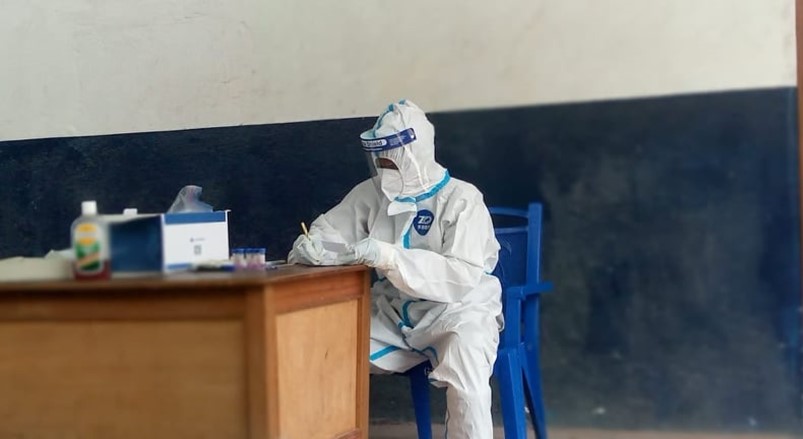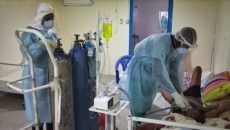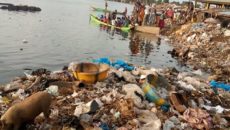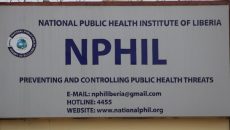PAYNESVILLE, Montserrado – Interviews with dozens of individuals who have been tested suggest that Liberia has not put in place an efficient enough mechanism for distributing results after COVID-19 tests.
In fact, some individuals are expressing concern that even one month after being tested, they have still not received their test results.
Testing has been recognized as a necessary means of curbing the spread of COVID-19. It supports the isolation of infected persons and ensures subsequent treatment. It is also important in contact tracing to monitor people who may have come into contact with an infected person. Moreover, widespread testing allows health authorities to understand the true prevalence of the virus within the country.
Liberian health authorities have recognized this, and they have been emphasizing the need for anyone suspicious of having COVID-19 to be tested.
Dr. Mosoka Fallah, Director of the National Public Health Institute of Liberia, was one of those who was publicly tested, to encourage the public to voluntarily show up for testing.
However, health authorities may be causing harm to their efforts, as new revelations show that people who have done their test have waited for up to one month without receiving their results from NPHIL – the health authority responsible for conducting COVID-19 tests in Liberia.
Marilue Forgelo, who lives on Paynesville’s S.D. Cooper Road, told The Bush Chicken that she voluntarily provided her specimen at the Samuel Kanyon Doe Sports Complex’s specimen collection center on June 12, but has not yet received her result.
“You can’t tell someone to come and test and the person walks freely to volunteer and tests and up to this time, can’t get her result to know what’s going on,” she said.
“What if I am positive? It means the community I live [in], I [might] have infected so many people by now.”
Forgelo said she decided to get tested because she understood that if she had the virus, early treatment would give her a better chance at survival.
Now, instead of increasing her chance of survival, the decision to be tested is causing Forgelo to be ostracized – her boyfriend and friends have been avoiding her because she has failed to prove that she is negative of COVID-19 after doing her test.
“He said he will stay away until I can show him proof that I am negative,” she said of her boyfriend. “This is causing problems for me.”
Forgelo had planned to convince all her family members to be tested for COVID-19, but after seeing her situation, she says no one wants to go through the process.
Another person, Alex Smith said he had planned to get voluntary testing, but decided otherwise because of complaints from others that they have not received their results on time.
“Maybe I will decide to do my test in the future, but not now,” said Smith, who is a resident of Congo Town, in Monsterrado.
At the SKD testing site, another resident of Monrovia – who spoke on condition of anonymity for fear of being stigmatized – said he had decided to self-quarantine from his family and workmates until his results were released. However, since July 2 when he was first tested, he has received no results up until July 15.
“How do I go back to my office and my family and say I am coronavirus free when I have no result to show?” he wondered.
“I feel I was doing my family and my friends good, but I actually put myself into [a] total mess.”
The delays in providing results have existed since Liberia recorded more than a dozen confirmed COVID-19 cases. Several persons, who were tested in late March, also said they never received their test results.
In order to help verify these claims, a reporter from The Bush Chicken recently decided to undertake the testing process himself. When the reporter visited the sample collection center at the SKD Sports Complex on June 12 in Paynesville, there were only two persons in the queue. It took 10 minutes for the reporter to reach the desk where his personal information was collected, and then his specimen was collected in the next room.
The staff at the collection center promised that candidates would be contacted with their results within three days. But it has been more than a month, and the results have not arrived.
On a follow-up visit on July 15, a staff explained that most candidates who tested negative are never contacted.
“If you are positive, you will be contacted and picked up once the result is out,” she said.
But her response was hardly comforting. There were no signs at the collection site explaining the details. Before samples are collected, candidates are not told that if tested negative, their results will not be released.
With international flights now resumed, the management of the Roberts International Airport is requiring travelers to have a Polymerase Chain Reaction or PCR test for COVID-19, within 72-hours before arrival – or proof of a negative COVID-19 test days before traveling. And with negative test results not made available, according to the staff at the testing center, it makes it difficult for people traveling.
Pressed on how travelers could get proof of their negative results, the NPHIL staff said travelers would have to visit the Montserrado County Health Team’s office in Paynesville to obtain their results and receive a certificate from the Minister of Health, Dr. Wilhelmina Jallah.
When contacted, NPHIL’s communications officer, Oliver Jah, denied that it was a design of the system to not provide results to candidates who tested negative.
He, however, did not provide any explanation on why tested candidates were complaining that their results were delayed or not provided at all.
Jah referred The Bush Chicken to Dr. Fallah or the Ministry of Health for further explanation. But – after multiple attempts to contact them, both Fallah and the Ministry of Health have not responded to The Bush Chicken’s inquiry made by phone and emails on June 20, July 13, and July 15.
Sources who have attended meetings held by the Incident Management System – the body that is coordinating the medical response to COVID-19 – have told The Bush Chicken that officials at NPHIL and the Health Ministry are aware of the issue with late or no results, and are trying to implement an automated SMS notification system to resolve it. However, The Bush Chicken has not been able to independently confirm this information.
American news outlet AZCentral reported that the director of the Arizona Department of Health Services, Cara Christ, notes that the ideal time range for people who get tested to get their results is within 24 to 48 hours, in order for public health responses to work effectively.
“If you’re not getting that result for five days and you feel completely fine or maybe you just have a little bit of mild symptoms, you might think to yourself, ‘Oh, it’s OK if I run out to the store or I go to work today,’” Christ said.
In the same AZCentral report, the executive director of Arizona’s Public Health Association, Will Humble, said delayed results could have a cascading effect on public health response.
“If the labs were coming back five to six to seven days after the sample was taken, it doesn’t matter how good the contact tracing capacity is, it doesn’t matter how good and efficient they are at following up, the infections would have already spread to their coworkers and family members and roommates by then because very few people isolate between the time their sample is taken and they get their test results back,” Humble said.
Featured photo by Gbatemah Senah



